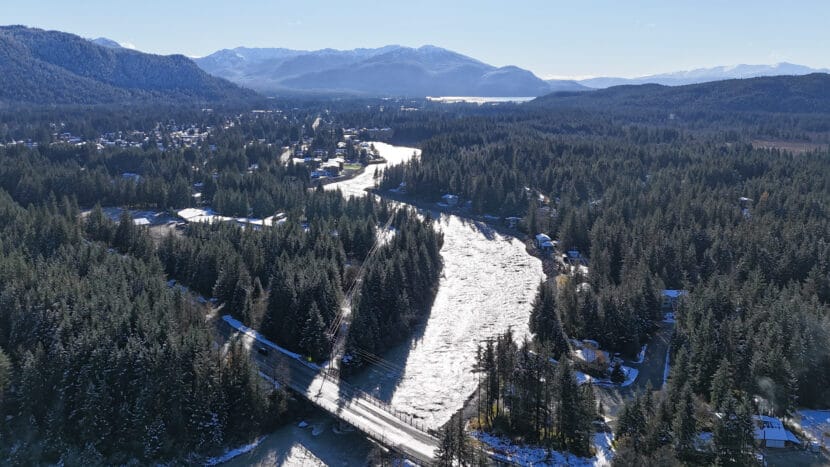
The U.S. Congress passed the American Relief Act of 2025 late last month. Tucked inside it is millions of dollars directed to study possible ways to mitigate Juneau’s glacial outburst floods in the long term.
Juneau City Manager Katie Koester said securing the funding is a big relief.
“I am incredibly excited and thankful,” she said during an interview on Thursday. “The community has been really vocal about not wanting to lose sight of a long-term solution, and this allows us to just get started as soon as possible on a long-term solution.”
The U.S. Army Corps of Engineers will lead the study to examine potential engineering solutions for mitigation and prevention.
This fall, Koester, Mayor Beth Weldon and representatives from the Central Council of the Tlingit and Haida Indian Tribes of Alaska traveled to Washington, D.C. to advocate for federal money and support for the study.
The entire study is projected to cost about $6 million. In September, the Juneau Assembly committed $3 million towards it. Koester said this new bill promises some funding for the investigation, but it’s not clear exactly how much money is coming yet.
It could take a few years to complete and even longer to implement a long-term solution. In the short term, the city proposed a multi-phased plan to install military-grade HESCO flood barriers along key sections of the Mendenhall River before the next flood hits this summer.
“The investigation study through the Corps is going to be a much longer process than the HESCO barriers that are hopefully going to be installed this summer,” Koester said. “The short-term solution is designed to buy us time while we work on the long-term solution.”
The first phase of the barrier project is estimated to cost nearly $8 million to install. The city would provide some funding to cover the cost using Juneau taxpayer dollars, but the rest would be split among nearly 500 homeowners in flood-prone neighborhoods through the creation of a local improvement district, or LID.
The city has held several public meetings on the proposed plan. The next one is Friday night at Thunder Mountain Middle School. Homeowners in the proposed district must object in writing or they will be considered in favor of the plan. They have until Feb. 3 to do so.
If more than half of the homeowners vote against it, then the plan fails. The Assembly can choose to override that decision at its February meeting.
